Welcome to the Wagonex Car Reviews Hub — your central guide to the most popular,...

How a Wagonex Car Subscription Compares to PCP & Leasing
The Total Cost of vehicle ownership: Subscription VS Leasing and PCP
When you’re shopping for a new car, it can feel overwhelming trying to figure out which is the best type of car finance for you. With so many different kinds of contracts available and so much information out there online, it can be really difficult to do a fair comparison.
In this article, we’re going to take a look at 2 of the most popular forms of car finance available, Personal Contract Purchase (PCP) and Leasing, and how the costs compare to a car subscription. We’ll explain how each one works, what can be good and bad about them, and then do some cost comparisons with real-life examples, to look at the total cost of ownership over a set term. You might be surprised by the results!
PCP
PCP, or Personal Contract Purchase, is undoubtedly the most popular method of car financing in the UK. It's widely available at car dealerships and car supermarkets, often making it the first choice for those looking to finance a new set of wheels.
Typically lasting for 3 or 4 years, a PCP agreement requires a hefty deposit to secure a lower monthly cost. In a PCP agreement, you essentially pay for the car's depreciation while you own it, factoring in elements like your estimated annual mileage, the duration of the contract, and the projected market value of the car at the end of the contract (known as Guaranteed Future Market Value).
You’ll also be paying interest on the credit provided for the agreement, unless you bag a 0% APR deal which is becoming rare in the current financial climate.
When the agreement period comes to an end, you have three choices. First, you can simply return the car. Second, you can pay the balloon payment (the remaining value of the car) and the car becomes yours. Third, if you've accumulated any equity on the vehicle via overpayments, you can use it as a deposit for a new PCP contract.
Benefits of PCP:
- Flexibility at the end of the term: The best part about PCP are the choices and flexibility you get. At the end of the agreement, you have options, depending on your situation and your goals.
- Lower monthly payments: With PCP, you get the benefit of lower monthly payments compared to other types of car finance, making it easier on your budget.
- New car every few years: If you enjoy getting into a new car every few years, PCP finance allows you to upgrade to a newer model at the end of each agreement. And if you prefer one particular car manufacturer, you can sometimes benefit from your loyalty.
Drawbacks of PCP:
- Large deposits needed: To actually get those attractive low monthly payments, you’re going to need to put down a pretty big deposit upfront. So, if you don't have a large amount of cash lying around or a vehicle to part-exchange, this will really limit your options for affordable monthly costs.
- Longer contract duration: The typical length of a PCP agreement is three to four years, because if you choose anything less, the monthly costs become very high. If you don’t like being locked into long term financial agreements, PCP probably isn’t for you.
- Hidden Costs: Those “too good to be true” low monthly costs are exactly that! You’re going to need to add on maintenance and servicing packages, roadside assistance, and road tax. All essential things that are going to bring up your monthly payments or overall costs.
Leasing
Leasing is much simpler than PCP car finance. Think of leasing as a long-term car rental, where you pay your monthly payments and then just give the car back at the end of the contract.
You need to put down an initial deposit but it’s usually much lower than the deposits required on a PCP contract. You usually choose either 3, 6 or 9 months worth of payments to put down as your initial deposit, depending on how much cash you have spare, and obviously the higher your initial deposit, the lower the monthly costs.
Just like with PCP, your monthly payments will be covering the cost of depreciation of the vehicle and the cost of credit. However, with a Lease contract you don’t build up any equity in the vehicle like you do with a PCP agreement.
And at the end of the lease agreement, you give the car back to the leasing company. So it’s simpler than PCP but you don’t have different options or the ability to negotiate with your dealer on a new deal.
Benefits of Leasing:
- Lower upfront costs: Leasing gives you the option to put down a smaller initial payment compared to PCP, making it more affordable for those with limited savings.
- Driving a new car: If you love driving a brand-new car every 2 or 3 years, leasing is ideal for you as these contracts are designed for new cars only. New cars come with manufacturer warranties as well, so you get extra peace of mind.
- Easy return process: At the end of the lease agreement, you just give the car back. No need to worry about calculating the most profitable way to proceed, the decision making is taken care of.
Drawbacks of Leasing:
- Limited flexibility: On the flip side, the simplicity of just handing the car back could be a negative for you. If you want to keep the car because you really like it, too bad. Plus, you have to go shopping for another car even if you don’t feel like it.
- No early termination: If your circumstances change or you simply get bored of the car, you can't end the lease agreement early. This lack of flexibility can be frustrating at best or a real financial problem at worst.
- No equity accumulation: With a lease agreement you’re paying your monthly fee but not getting anything back, other than the use of the car. With a PCP though, it’s likely you’ll be building up equity in the car over time, which could be used as a deposit for a bigger, better car next time.
- Hidden costs: just like PCP, those cheap lease deals won’t include maintenance, servicing, road-side assistance or road-tax. So, your monthly costs are going to be higher than you first thought.
Subscription
Here at Wagonex, we see car subscription as the future of car ownership, inspired by online services like Netflix and Amazon Prime it’s designed to meet changing consumer demand for convenience, flexibility and transparency. Subscription is set to shake up the car industry, but how is it different from leasing or PCP finance?
What sets Subscription apart is that all the costs for owning a car are included in one monthly payment. That includes the cost of the car, road-tax, maintenance, servicing, road-side assistance. It’s perfect if you don’t want the headache of arranging and managing all those other essential costs.
Plus, that one transparent, monthly subscription cost makes it so much easier for you to make an informed decision whilst shopping for cars. There are no hidden or unforeseen costs you need to go and work out.
With Subscription you choose how long you want the car for. You don’t have to be locked into a 3 or 4 year contract like a PCP or Lease contract. Instead, you can choose a 12 month, 6 month or even a 1 month subscription. It’s unrivalled flexibility, that also lets you try out different cars or adjust quickly to changes in your circumstances.
Ordering a car on Subscription is super convenient too. You pick the car you want and how long you want it for online, provide some details at the checkout and arrange the delivery.
And when your subscription is over, you just give the car back and move on. Nice and easy.
Benefits of Subscription:
- One monthly cost: Car subscription wraps up all your car expenses into one easy monthly payment, making it simpler for you to budget and to compare vehicle costs.
- Short-term agreements: Subscription offers unrivalled flexibility and freedom. You have the option to drive a car for as little as 1 month, so you can try different cars more often or change your car depending on changing life demands.
- Refundable Deposit: You don’t need to provide so much cash up-front as a deposit, which lowers the barrier of entry for getting into a brand-new car. The deposit is also refunded when the vehicle is returned.
- Easy Ordering Process: With car subscription, you can complete the entire ordering process online in a few clicks. It’s the most stress-free and convenient way to order a car.
Drawbacks of Subscription:
- Higher Monthly Costs: Compared to the other traditional financing methods, the monthly costs are higher on paper.
- Returning the Car at the End: Just like with leasing, you have to return the car at the end of the agreement. Great for simplicity but if you like to own your vehicle this might not be for you.
- No equity accumulation: You are not “investing” or building up equity in the car throughout the duration of the agreement (but this also means you don’t need to worry about depreciation).
Comparing the total cost of ownership
Now after going through each of the 3 most popular types of car finance, you’ll probably have a better idea of what contract might work best for you and your situation. But seeing as cost is probably the most important factor, let’s take a more in-depth look at cost of ownership.
Earlier we saw that Subscription’s main downside was the higher monthly costs, compared to PCP and Leasing. But, is Subscription actually more expensive, when you factor in all of the costs over the whole term?
Let’s have a look at some real-life examples and do some thorough comparisons.
We’ve picked 3 different kinds of car*, a Diesel (VW T-Roc), a hybrid (Mercedes-Benz GLA) and a full EV (MG4), to give you an idea of how the costs look for different fuel types.
VW T-Roc
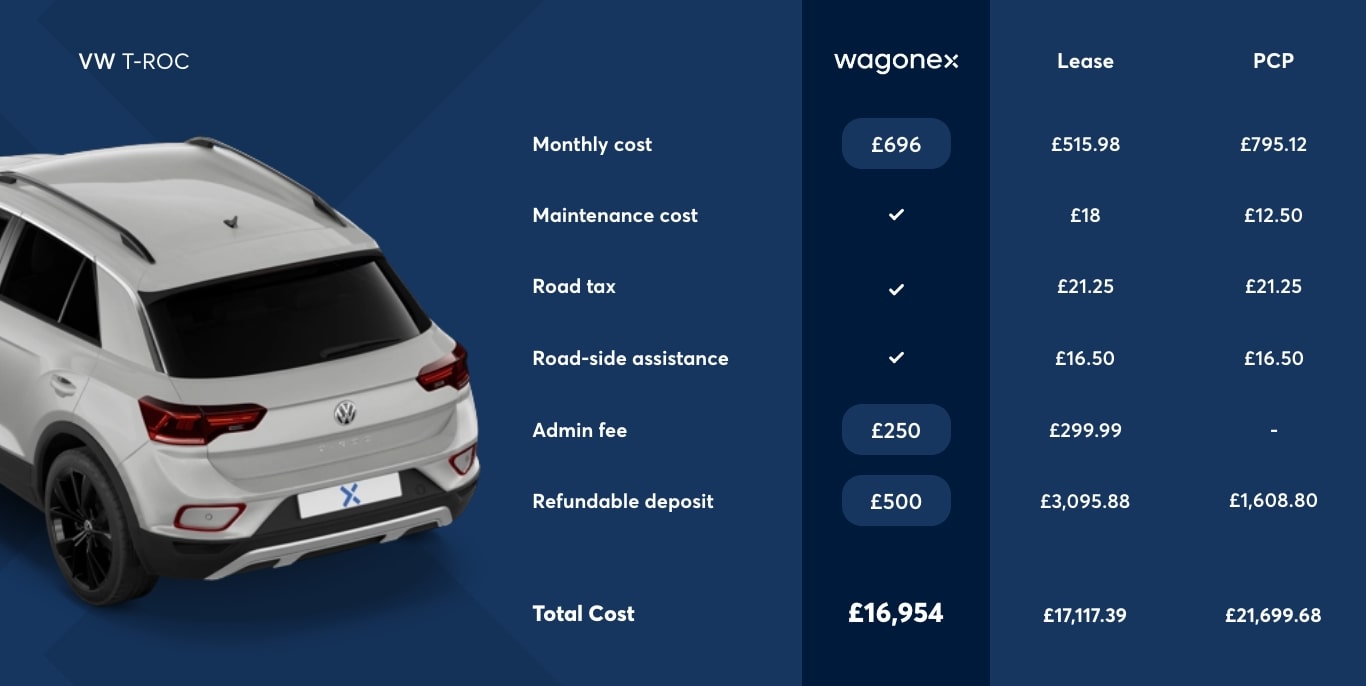
MG4
Mercedes GLA
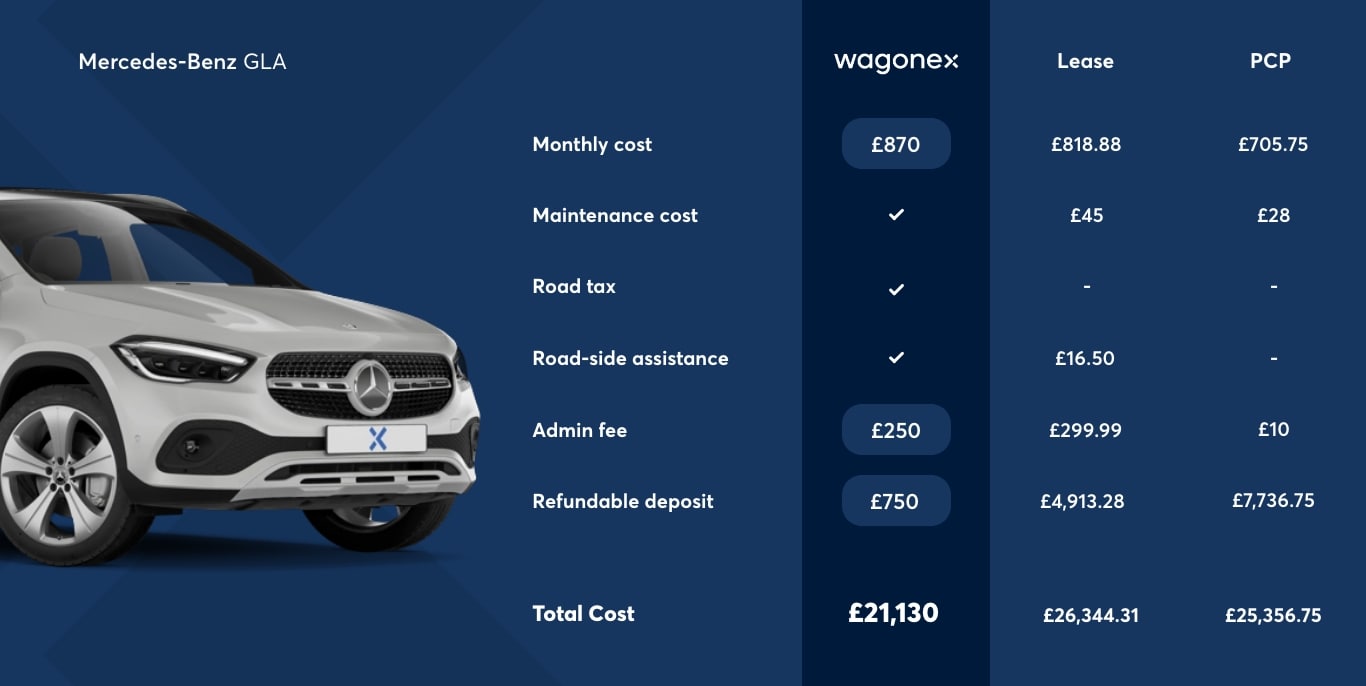
The results are in, and Subscription comes out as the winner!
In 2 out of 3 examples, Subscription has the cheapest costs for a 24 month deal, and is only slightly more expensive than Leasing in the MG4 case. Choosing a Subscription over PCP could save you more than £5k on some cars, which is unbelievable!
Whilst we’re on the topic of costs, another cost to think about is the premium you pay for Subscription’s flexibility. You might think “You told me I could get shorter term Subscriptions, but I bet you have to pay over the odds for that privilege”.
Yes, it’s true that you might pay a premium for a 1 month or 3 month contract, but if you look at Subscription costs for 12 month contracts you actually pay little or no premium at all, it all depends on the supplier!
You can see that for the T-Roc and MG4, with some of our suppliers you don’t actually pay any extra for taking out a 12 month subscription vs a 24 month one. So, more freedom at no extra cost. And even with the GLA, you only pay £12 a month more for the freedom of a 12 month contract vs the 24 month contract.
Summary
To summarise, Car Subscription can work out a cheaper and more flexible way to get a new car, once you factor in the total cost of ownership.
Subscription offers unparalleled flexibility with contract length. It’s super convenient and you don’t need to put down your hard earned savings upfront; the deposit you do pay is refundable when you return the car!
So with all that in mind, it begs the question; why wouldn’t you choose Subscription for your next car?
Follow this link to browse our full list of cars available for subscription.
* Prices correct at time of writing
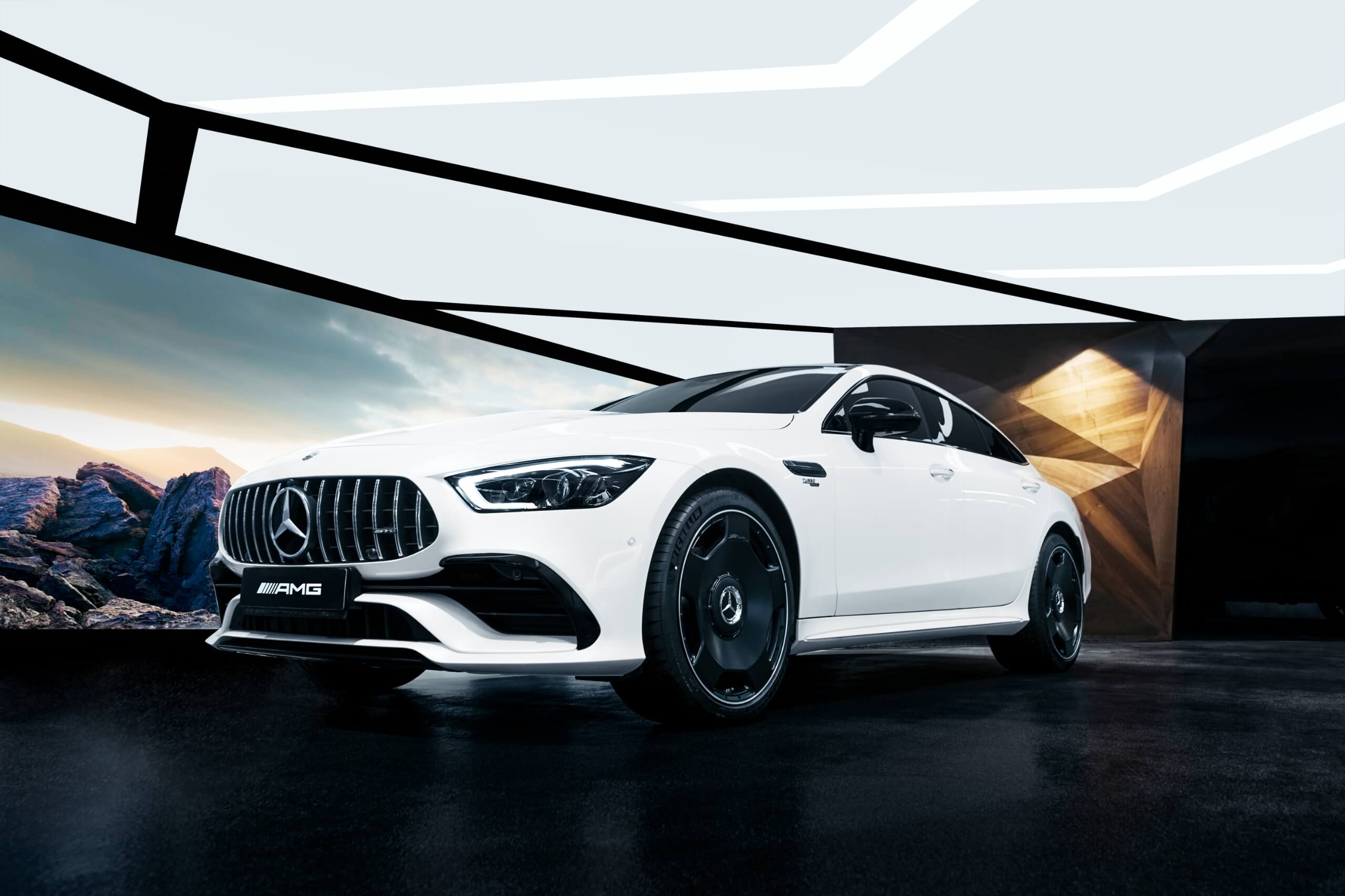
Tesla Model Y vs. Model 3 | Wagonex Car Review Comparison
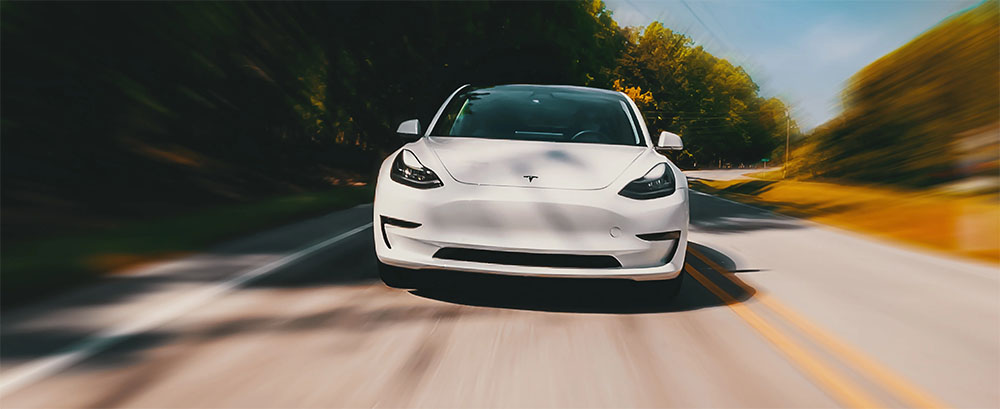


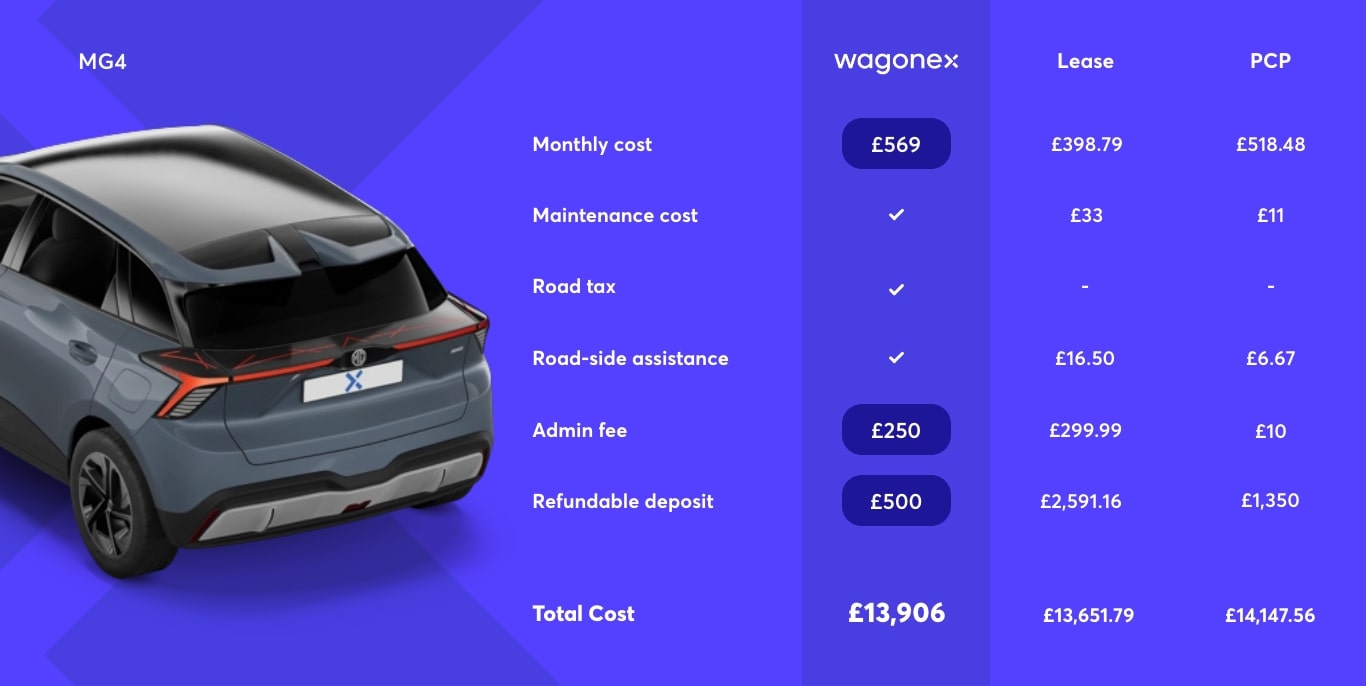
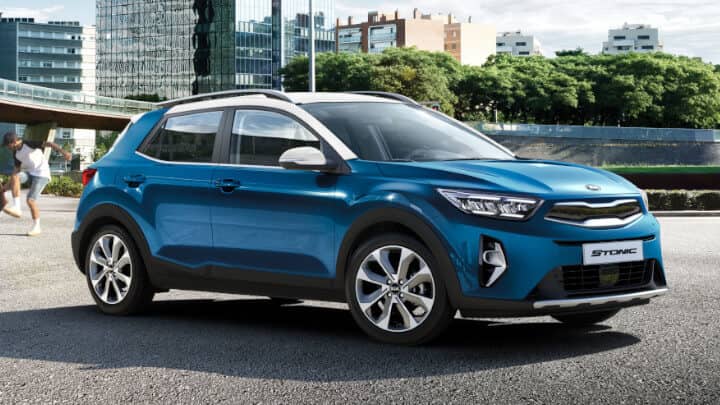
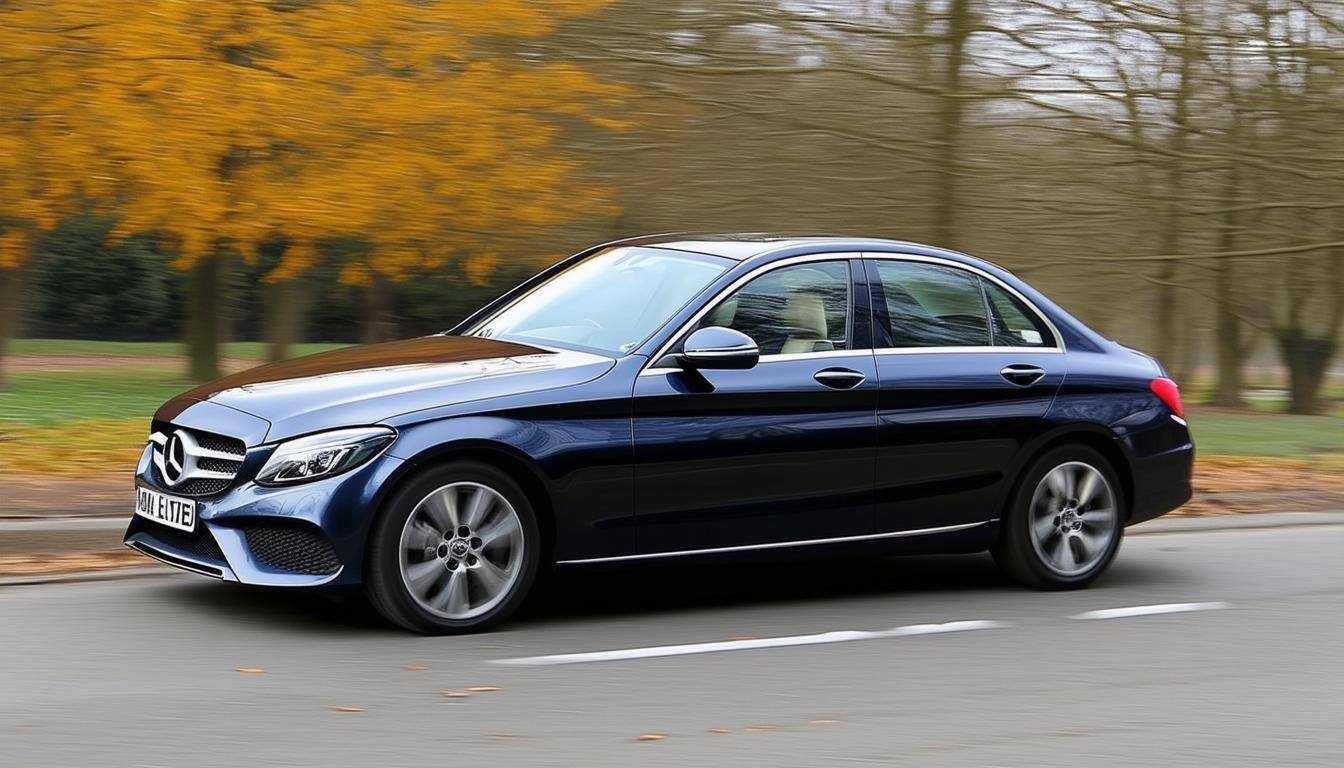

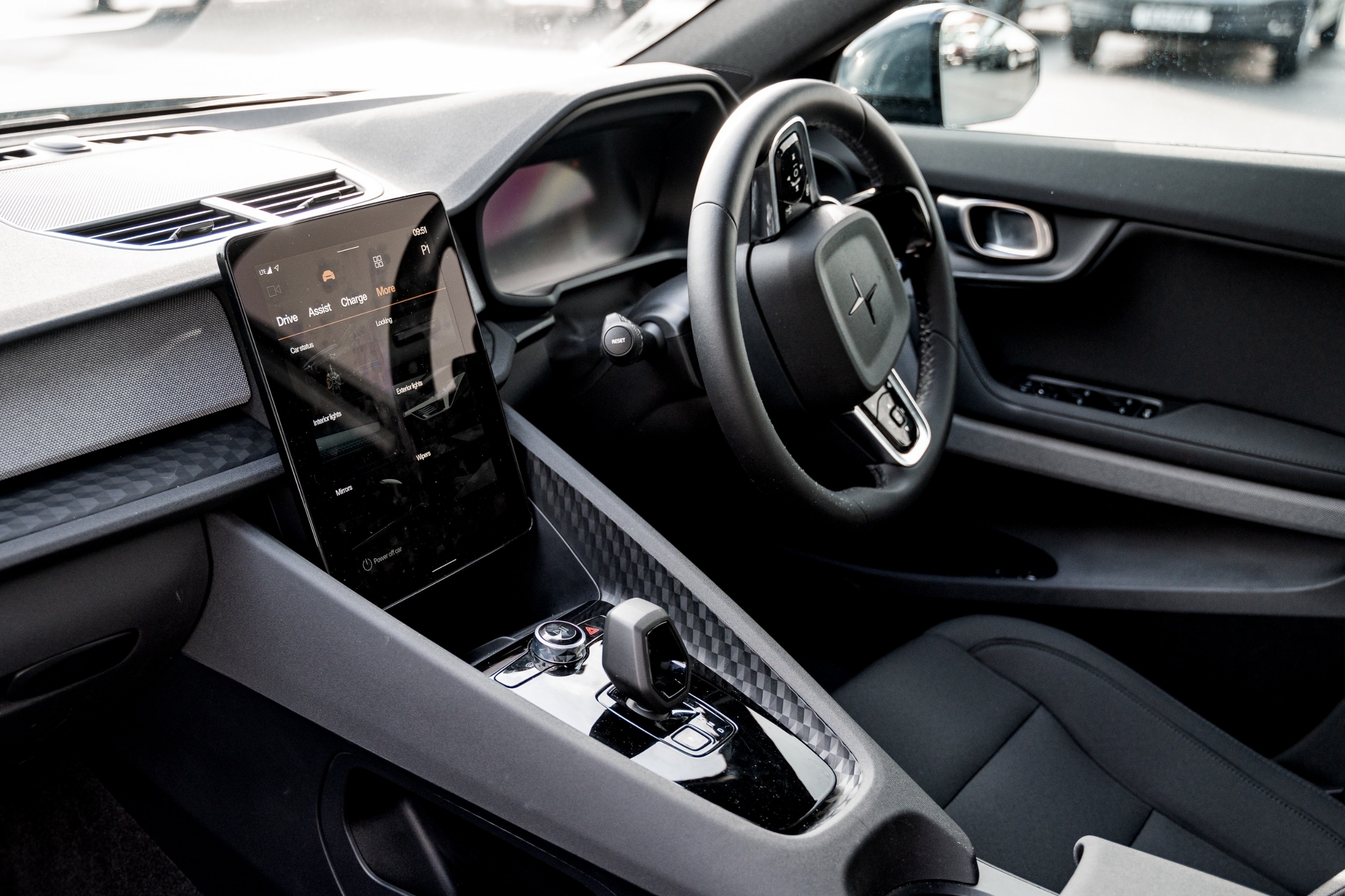

-2.jpg)